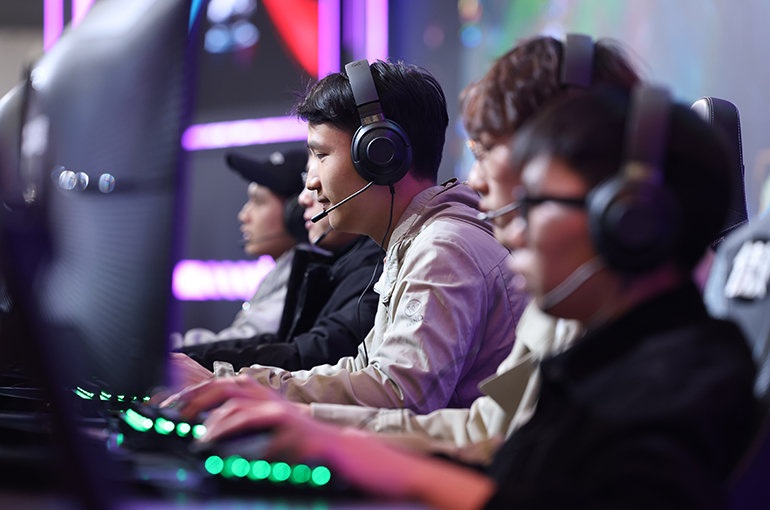 Shanghai Emerges as Asia's Top E-Sport Tournament City
Shanghai Emerges as Asia's Top E-Sport Tournament City(Yicai) May 6 -- Shanghai has earned the position of leading e-sport tournament host city in Asia, with a complete ecosystem spanning events, commercialization, and audience engagement.
Shanghai hosted the Dota 2 tournament Asian Champions League x ESL Challenger China from May 1 to May 3, attracting over 3,000 spectators and millions of online viewers.
From May 16 to May 18, the city will hold the ACL 2025 Grand Finals for nine games, including Dota 2, Counter-Strike 2, and League of Legends, across three major venues.
"It's challenging to host an event of such scale in South Korea," said Jonny Wang, co-founder of Hero Esports, also the Chief Executive Officer of the ACL. "Where can you find a city with two 10,000-seat venues and multiple 5,000-seat arenas in South Korea?"
Even Seoul, South Korea's largest city, struggles to meet such venue demands, Wang explained.
"A decade ago, China's e-sports industry viewed South Korea as a global leader and went all out to learn from its advanced practices," Feng Xiao, vice president of TJ Sports, a joint venture between Chinese gaming giant Tencent Holdings and its US counterpart Riot Games, told Yicai. "Now, China's e-sports level and capabilities have overtaken South Korea's."
South Korea's ecosystem remains more professionalized, with more mature team and coaching systems, while the management of Chinese players is looser, Wang noted.
The Japanese e-sports industry is still in an early stage, Feng pointed out. Both in terms of professional player skill level and audience scale, it closely resembles China's e-sports industry a decade ago. Tokyo's overall e-sports ecosystem is on a completely different level than Shanghai, according to Wang.
However, profitability remains a challenge for the whole industry. For example, Intel Extreme Masters is reportedly mulling relocating its annual tournament from Katowice, an established European e-sports hub in Poland, because the local government will stop providing free venues.
Hero Esports is prepared for three years of losses, Wang said. "Year one isn't about profits but about audience reputation, as commercial success hinges on fan approval," he stressed. "For a new intellectual property, reaching scale, building credibility, and attracting consumers are paramount."
NIP Group, an e-sports business founded by Mario Ho, the youngest son of the late Macao casino tycoon Stanley Ho, has seen its Nasdaq-listed shares plummet since its debut in July last year, with its market cap now hovering around USD100 million. NIP reported a revenue of USD39.3 million and a net loss of USD4.7 million in the first half of last year.
Despite Shanghai's mature e-sports infrastructure, its ecosystem still requires refinement, Wang said. "Addressing critical bottlenecks could unlock promising profitability prospects."
Editor: Futura Costaglione